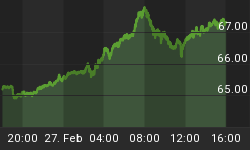Economic data continues to reinforce the reality that a housing double dip has in fact begun. Were it not for the 2010 tax credits there would likely have just been one dip and we would be further along the process of clearing supply than we are today. Regardless, it is here and the question then becomes what, if any impact will it have on economic growth.
In December, Chairman Bernanke was asked during his 60 Minutes interview "how would you rate the likelihood of dipping into recession again?" To which he responded "it doesn't seem likely that we'll have a double dip recession. And that's because, among other things, some of the most cyclical parts of the economy, like housing, for example, are already very weak. And they can't get much weaker. And so another decline is relatively unlikely."
In 2009, the CBO Budget And Economic Outlook Report stated "the recession was precipitated by a drop in house prices and housing starts, which abruptly undermined the solvency of financial institutions and severely disrupted the functioning of financial markets." Is it truly "different this time?" Is housing as a percentage of GDP so small that contraction in the sector will have little to no impact on economic growth?
Housing as a percentage of real GDP is surprisingly still relatively high at 15% versus 18.25% in 2005 and a high of 19% from 1975-1985. Although residential investment has fallen off sharply since 2005, the housing services component has stayed relatively flat.

Aside from residential investment and housing services there are a number of indirect ways a new leg down in housing will have a negative affect on future economic growth.
-
The wealth affect of housing affects more American's than that of stocks. Consumer confidence will pullback as will spending on discretionary items.
-
Skilled labor jobs will continue to disappear forcing a large portion of the labor force to be retrained.
-
Bank balance sheets will face greater capital shortfalls and increased provisions for credit loss.
-
The harder it is to sell a home, the less mobile the labor force becomes resulting in a greater gap between available jobs and qualified applicants.
-
The market is basically caught in a negative feedback loop. The more people are foreclosed, the more demand shrinks (they can't buy another house) and supply grows. The result, the imbalance grows.
-
Rising foreclosure and strategic defaults reduce property tax revenue causing municipalities to further reduce spending.
-
Credit formation will be reduced as risk averse banks increase credit standards and pricing.
Fool me once, shame on you. Fool me twice, shame on me. In 2007 Bernanke was fooled when saying subprime was contained. In 2011 he will be fooled yet again for claiming that a renewed contraction in housing will have a minimal impact on the economy and certainly will not cause a recession. Over the past decade the US economy was built around housing. Now that is gone. What else do we have to grow? To say the impact of housing on the economy is negligible is grossly understated.















